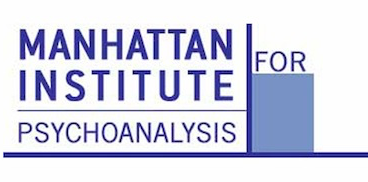CORE Co-Chairs Rossanna Echegoyén and Chanda Griffin answer common FAQs for Analysis Now.
What is CORE?
CORE is the Committee on Race and Ethnicity, formerly known as the Multicultural Committee. CORE co-sponsors colloquia hosted by the Manhattan Institute for Psychoanalysis, bringing in speakers to address topics around race, class, ethnicity and the intersection with psychoanalysis. In the past, CORE led reading groups on race and culture, as well as a supervision group focused on transference and countertransference with race in mind. CORE has collaborated with MIP administration in the creation of a class on race and ethnicity, which is now required in the five-year program. During the last year, CORE has been actively advocating for change in all levels of analytic training, such as diversifying faculty and curriculum, as well as collaborating with administration to gear the institute toward an anti-racist lens in the wake of George Floyd’s murder. CORE Dialogues organically formed in response to racial violence.
What is CORE Dialogues?
CORE Dialogues started as a way for the Manhattan Institute community to talk openly about race. The group evolved from exploring “how to talk about race” into a process group on racialized dynamics in the mixed race space. We meet every two weeks to identify and speak to our own inner truths, while also respecting each other’s positionality, which considers racial, class, gender and sexual identities in the context of the sociopolitical world. We also are reminded of and take into context each other’s social locations, which are more specific to our social identities in society.
How does the group function?
A rotation of two different co-facilitators lead each group. This models a sense of community and our collective effort within the group process, and allows new themes to emerge each time, depending on who is leading the group. We typically begin with a question that threads back to our last meeting, and the conversation flows from there. Our aim is to help people speak freely with each other about race. As painful as it can be, people report feeling transformed by these conversations—they are learning to be braver, acknowledging their felt experience with racism, and they are becoming more self-aware.
We acknowledge that our group is not outside of history and we fully expect that we will enact racialized traumas. As we aim to work through and understand, we continue to deepen our awareness of our own racial biases and racism, including BIPOC members of the group. Since its inception, we have come together and agreed to continue, including white people, to keep coming no matter hard it gets. Our aim is to speak our truth, bear witness and be authentic without collapsing the space. Every once in a while, the space collapses and implodes, yet we continue to circle back to each other to speak our truths.
When and how did Dialogues originate?
In the wake of George Floyd’s murder, CORE called a Town Hall meeting on June 12, 2020, to offer the MIP community members an open forum to talk about whatever came up for people. Some folks wanted advice on how to work with and bring up the topic of race with people of color in the consulting room, and others wanted help talking about race and privilege among people of the same race. We addressed how the institute could respond to the racial violence and began drafting a statement. People talked about their practices, about themselves, and about not wanting to say or do the wrong things. What emerged from this meeting was a strong desire to continue our conversations, even though many feared bringing up race with their patients, and even with their BIPOC colleagues and friends.
Both of us have been working through identifying and emerging our own racialized selves as we navigate institutional white spaces. We raised challenging questions with the group, such as: “What would acknowledging institutional racism look like?” and: “Can you be a good person and a racist?” It was clear from their reactions and participation that people wanted to learn how to better talk about race. Thus, CORE Dialogues organically evolved, and we have been meeting every two weeks since then.
Who may attend?
Dialogues is open to members of Manhattan Institute community—graduates, candidates, supervisors, faculty, board members, and administration. As the group continues to evolve, we hold the tension of deepening our process with members who attend regularly, and welcoming newcomers who may have an experience-near, “finger on the pulse” encounter.
Is the group open or closed?
Anyone who is interested is welcome to attend CORE Dialogues, whether it be once to see what it’s like, or as often as desired. We hope that many more people within our community and outside of it will benefit from this unique, transformative experience as we discuss the impact of race and the interplay of racialized roles with one another. When new members drop in, they can easily follow along and catch up, and decide whether or not they would like to participate. Even if newcomers choose not to speak, their bearing witness to the forum is powerful on its own and/or can elicit responses from other group members.
What is the vision for Dialogues moving forward?
We hope that CORE Dialogues participants take what they are learning about themselves and apply it to every aspect of their lives, both inside and outside of the consulting room, and in the community at large.
Rossanna Echegoyén, LCSW, is a Latina/bilingual psychoanalyst whose life trajectory is marked by her experience as a first generation American to immigrant parents from Central America, and a pursuit for social justice, which led her to the helping profession. She is Founder and Co-Chair of the Committee on Race and Ethnicity (CORE) at the Manhattan Institute for Psychoanalysis. She is active on the Psychoanalytic Coalition for Social Justice, the Board of Division 39, Section 9—Psychoanalysis for Social Responsibility, and is faculty and supervisor at various institutes in New York City, where she is in private practice.
Chanda D. Griffin, LCSW, is a teaching, training, and supervising analyst at the Manhattan Institute for Psychoanalysis, and Co-Chair of the Committee on Race and Ethnicity at MIP. Additionally, she is a faculty member of the National Institute for the Psychotherapies and an Adjunct Professor at the Silberman Graduate School of Social Work at Hunter College. Chanda is a member of Black Psychoanalysts Speak, and she is in private practice in New York City.
Stay tuned for our next blog post in our Spotlight on CORE series, featuring Voices from Dialogues…
If you enjoyed this post, we recommend:
Using Psychoanalytic Understanding to Face Climate Change by Elizabeth Allured, Psy.D, and Wendy Greenspun, Ph.D.








1 Comment
Leave your reply.